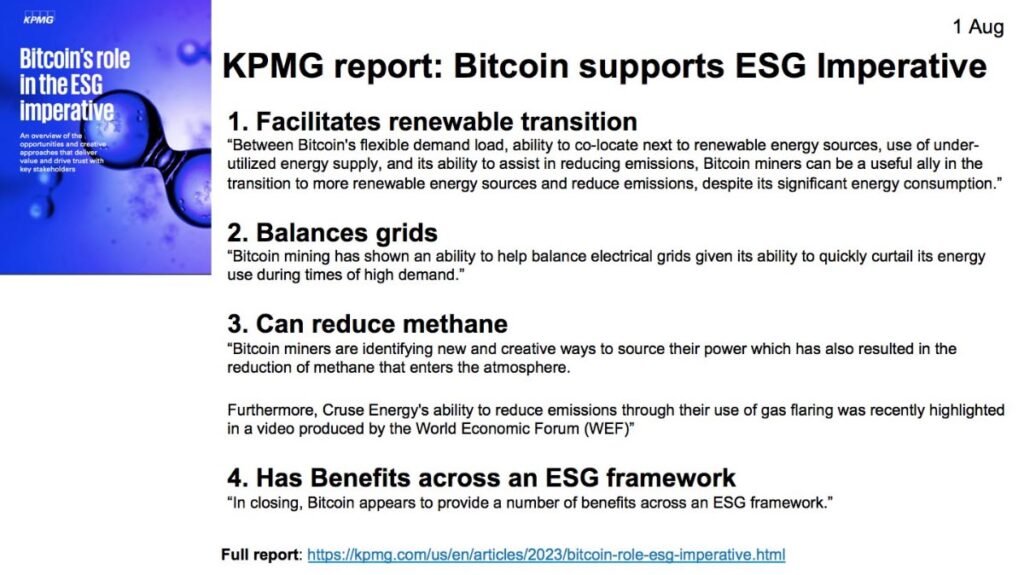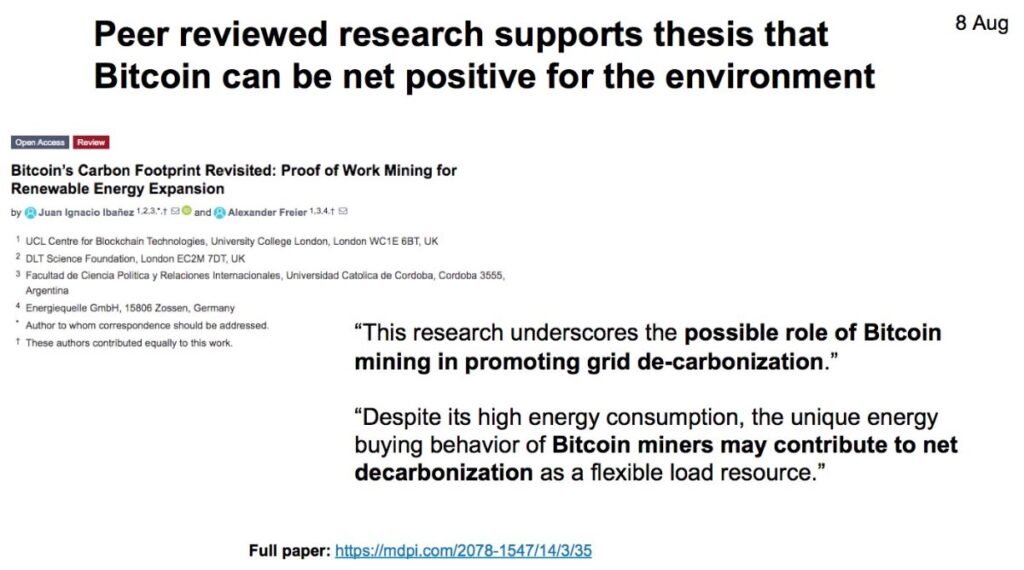In a remarkable shift within a year, the environmental, social, and governance (ESG) narrative surrounding bitcoin mining has undergone a significant transformation. A recent X thread aims to provide a concise overview of the pivotal events that have shaped Bitcoin ESG narrative reversal within a short timeframe.
On November 19, CH4-Capital co-founder Daniel Batten posted an X thread outlining the key events leading to this paradigm shift in the ESG narrative around bitcoin mining. He pointed out that this has resulted in the world’s investment committees stepping up their actions. He stated:
“It happened so fast that many of the world’s Investment Committees have not yet caught up. Let’s help them!”
The speed of change in the perception of Bitcoin’s ESG impact has outpaced the awareness of many investment committees globally.
Bitcoin ESG Narrative: Evidence From Reliable Sources
It began with the release of the KPMG report on August 1, 2023, emphasizing bitcoin’s integral role in the ESG imperative. The report highlighted that Bitcoin provides a number of benefits across an ESG framework, mentioning four major public utilities that the digital asset can offer: payments, Ukraine fundraising, access to electricity in rural Africa, and financial inclusion.

A Peer Reviewed Research
Shortly after this report, on August 8, peer-reviewed research surfaced, providing robust academic support for Bitcoin’s positive environmental impact. It stated:
“Bitcoin mining has shown an increasing trend towards utilizing VRE sources, particularly driven by the allure of low and sometimes even negative energy prices. Moreover, it holds potential as a flexible load in the energy system, with the ability to offer demand-response services, an essential feature for grid resilience as RE penetration increases.”

Cambridge Report
On August 30, Cambridge recognized the overestimation of Bitcoin’s energy consumption, solidifying the earlier reports. It marked a critical response to evidence indicating a periodic overestimation of electricity consumption by bitcoin miners.
The report busted false claims around the environmental impact of mining activities and acknowledged the technical evolution of bitcoin mining hardware over the years, covering a journey from CPUs to application-specific integrated circuits (ASICs).
Bloomberg Intelligence Report
On September 14, Bloomberg Intelligence released data highlighting bitcoin mining’s decarbonization efforts, further reinforcing the positive narrative shift. Jamie Douglas Coutts, Senior Market Structure Analyst at Bloomberg, stated:
“Bitcoin mining is emerging as a player in the drive toward decarbonization. The industry faces accusations that heavy energy use in mining the cryptocurrency makes its carbon footprint unsustainable, but improved data visibility contradicts this claim.”
Institute of Risk Management Report
Interestingly, on September 22, the Institute of Risk Management presented evidence showcasing how bitcoin mining supports the transition to renewable energy. This added another crucial layer to the evolving narrative. The report reads:
“As bitcoin and energy markets increasingly intersect, there is likely to be a growing trend towards vertical integration between energy infrastructure owners and bitcoin miners. This convergence between bitcoin mining and energy production is gaining momentum and is being seen as a facilitator of a sustainable, abundant future rather than a hindrance.”
Conclusion
The convergence of these impactful events, supported by reputable sources, has created an environment where the ESG case for Bitcoin is now deemed worthy of evaluation. This report encourages investment committees to consider the evolving landscape and reassess their stance on bitcoin mining’s environmental impact. As Bitcoin continues to evolve, so does the narrative surrounding its role in sustainability.
Related reading:
The Greenpeace Controversy: Change the Conversation, Not The Code










